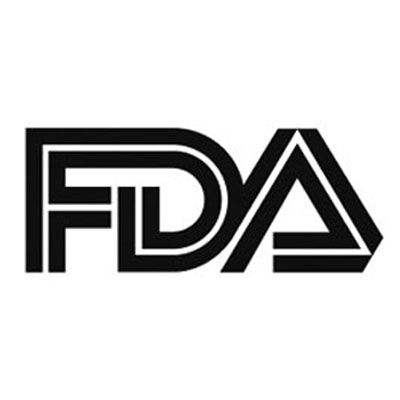FDA Grants Priority Review to Nivolumab Plus Cabozantinib in Advanced Renal Cell Carcinoma
The FDA granted a Priority Review designation to the combination of nivolumab plus cabozantinib for the treatment of patients with advanced renal cell carcinoma.

The FDA has granted a Priority Review designation to the combination of nivolumab (Opdivo) plus cabozantinib (Cabometyx) for the treatment of patients with advanced renal cell carcinoma (RCC), announced Bristol Myers Squibb in a press release.1
The Prescription Drug User Fee Act target action date has been set for February 20, 2021. The designation was granted based on data from the phase 3 pivotal CheckMate-9ER clinical trial, which demonstrated an improved overall survival (OS), as well as a doubled median progression-free survival (PFS) and objective response rate (ORR). The safety profile was also manageable with this combination.
“We have witnessed practice-changing advancements in the treatment of RCC in recent years, but we recognize the importance of providing patients and physicians with additional options that can help them take control of the disease,” said Mark Rutstein, vice president, development program lead, Bristol Myers Squibb, in a statement. “In the CheckMate-9ER trial, combining nivolumab and cabozantinib, 2 proven agents with strong clinical legacies in advanced RCC, led to superior efficacy across all endpoints. We look forward to working with the FDA to bring this potential treatment option to physicians and their patients who choose an immunotherapy plus tyrosine kinase inhibitor regimen.”
The data from CheckMate-9ER study were presented during the 2020 European Society for Medical Oncology (ESMO) Virtual Congress, in which the frontline combination demonstrated a 49% reduction in the risk of disease progression or death.2
After a median follow-up of 18.1 months, the median PFS was 16.6 months with the combination compared with 8.3 months with sunitinib (Sutent) (HR, 0.51; P <.0001). PFS was the primary end point of the study, and secondary end points included OS, ORR, and safety. The median OS had not yet been reached in either arm at the time of analysis, demonstrating a 49% reduction in the risk of death with the combination.
The ORR was 55.7% with the combination compared with 27.1% with sunitinib (P <.0001). In the nivolumab/cabozantinib arm, the complete response (CR) rate was 8.0%, and the partial response (PR) rate was 47.7%, while 32.2% of patients had stable disease (SD). An additional 5.6% of patients had progressive disease (PD) while 6.5% were not evaluable or not assessed. In the sunitinib arm, CRs occurred in 4.6% of patients, PRs in 22.6%, and SD in 42.1, while 13.7% had PD and 17.1% were not evaluable/assessed.
More than 50% of patients in the combination arm required a dose reduction of cabozantinib due to adverse events (AEs). The most common any-grade and high-grade treatment-related AEs (TRAEs) appeared similar between the 2 arms. TRAEs led to treatment discontinuations in 15.3% of patients in the combination arm versus 8.8% in the control arm, and 3.1% discontinued the combination due to AEs, 5.6% discontinued nivolumab, and 6.6% discontinued only the cabozantinib.
The overall rate of serious AEs was similar between the 2 arms, but liver toxicity was more common with the combination regimen compared with sunitinib. In addition, 19% of patients in the combination arm had required corticosteroids due to immune-related AEs, 4% of which required corticosteroids for at least 30 days.
The international study randomized 651 patients with advanced RCC 1:1 to receive either the combination of nivolumab plus cabozantinib (n = 323) or sunitinib (n = 328) in the frontline setting. Nivolumab was given intravenously at 240 mg every 2 weeks with oral cabozantinib at 40 mg daily. Oral sunitinib was administered at 50 mg daily on a 4-weeks-on/2-weeks-off cycle. Treatment in the study was administered until disease progression or unacceptable toxicity.
“With their complementary mechanisms of action and evidence that cabozantinib may promote a more immune-permissive environment, we believe there is opportunity for additive or synergistic effects with this potential combination regimen,” stated Gisela Schwab, MD, president, product development and medical affairs and chief medical officer, Exelixis.1 “Based on strong supporting data from CheckMate-9ER, the acceptance of our application is important progress in our efforts to make cabozantinib in combination with nivolumab available to patients with advanced kidney cancer who need additional treatment options. We look forward to working with the FDA throughout the ongoing review process.”
References
1. U.S. Food and Drug Administration accepts for Priority Review applications for Opdivo® (nivolumab) in combination with Cabometyx® (cabozantinib) in advanced renal cell carcinoma. News Release. Bristol Myers Squibb. October 19, 2020. Accessed October 19, 2020. https://bit.ly/3jac9z6
2. Choueiri TK, Powles T, Burotto M, et al. Nivolumab + cabozantinib vs sunitinib in first-line treatment for advanced renal cell carcinoma: first results from the randomized phase 3 CheckMate 9ER trial. Ann Oncol. 2020;31(4). Abstract 696O.
Enhancing Precision in Immunotherapy: CD8 PET-Avidity in RCC
March 1st 2024In this episode of Emerging Experts, Peter Zang, MD, highlights research on baseline CD8 lymph node avidity with 89-Zr-crefmirlimab for the treatment of patients with metastatic renal cell carcinoma and response to immunotherapy.
Listen
Beyond the First-Line: Economides on Advancing Therapies in RCC
February 1st 2024In our 4th episode of Emerging Experts, Minas P. Economides, MD, unveils the challenges and opportunities for renal cell carcinoma treatment, focusing on the lack of therapies available in the second-line setting.
Listen